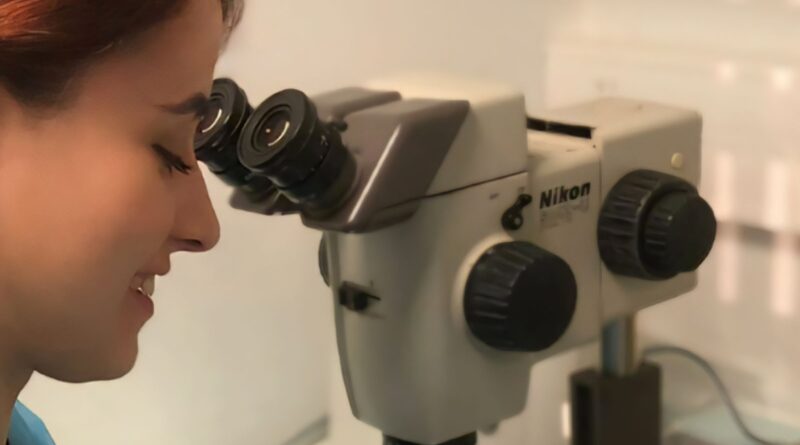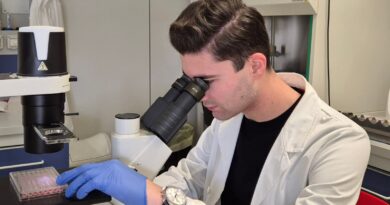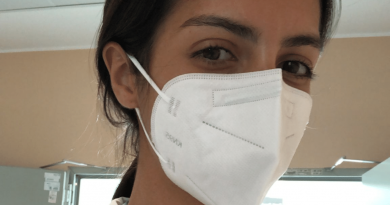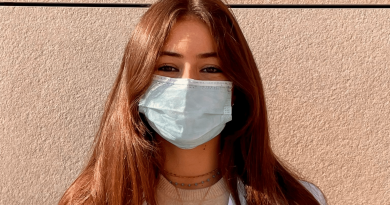My Week at the MuSkLE Summer School – Lyon, France – Georgiana Costandache
Personal reflections lab rotation
Georgiana Costandache, Virgilio 7 th Cohort Student, UNIMIB
This past June, I packed my bags and flew to Lyon for what turned out to be one of the most enriching weeks of my academic journey so far — the 4th edition of the MuSkLE (Musculo-Skeletal system, Locomotion & Exercise) Summer School.
The program admits only a limited number of participants, bringing together students and young researchers from around the world who share a passion for understanding how the musculoskeletal system works — and what happens when it doesn’t. Organized by the MuSkLE Graduate School, a network of nearly 600 scientists and clinicians from Lyon and Saint-Étienne, this initiative is dedicated to advancing knowledge on the musculoskeletal system, locomotion, and exercise in both physiological and pathological contexts.
During the week, we visited several leading institutions and renowned research centres, including the Institut Neuromyogène (INMG), the Laboratoire Interuniversitaire de Biologie de la Motricité (LIBM), the Laboratoire de Biologie Tissulaire et Ingénierie Thérapeutique (LBTI), and the Institut de Génomique Fonctionnelle de Lyon (IGFL). Each offered a distinct lens on this multidisciplinary field — from cellular biology to biomechanics, and from animal models to human performance.
We explored how muscles, bones, cartilage, tendons, and ligaments respond to stress, adapt to training, and deteriorate in disease, as well as how physical exercise can serve not only as a performance enhancer, but also as a therapeutic tool to prevent or treat conditions such as osteoporosis, muscular dystrophy, and joint degeneration.
Mornings began with symposia covering topics like energy metabolism, skeletal muscle regeneration, bone and cartilage repair, and the physiology of movement. Afternoons brought practical sessions that turned theory into hands-on learning: analysing chondrocyte cultures under the microscope, mechanically stimulating cartilage, measuring lactate levels, working with EMG activity and ultrasound imaging, and using confocal microscopy to study isolated muscle fibres. We tested human locomotion with thumb ergometers and accelerometers, observed zebrafish and drosophila to investigate locomotor function, and worked with rodent models to study regeneration and performance.
The program was intense and profoundly interdisciplinary, spanning molecular mechanisms to whole-organ physiology, and encompassing models as varied as cells, drosophila, zebrafish, rodents and athletes. What struck me most was its multi-scale approach — a reminder of how interconnected our knowledge must be if we are to truly understand and treat disease.
As a medical student, I’m often focused on diagnosis and treatment from a clinical perspective. This experience reminded me that behind every clinical decision is a body of research — research that someone has carried out with patience, precision, and passion. As a medical student, this experience strengthened my desire to keep one foot in the lab and the other in the hospital, bridging the gap between discovery and patient care.
Beyond the science, the true treasure was the people. Conversations in the lab, over dinner, and during walks around Lyon were as enriching as the academic program itself. I met brilliant minds from diverse fields — biology, medicine, exercise physiology, rehabilitation sciences — and from equally diverse backgrounds. Despite our differences, we shared the same curiosity and drive for discovery. Those exchanges reminded me that research thrives on collaboration as much as on curiosity. Alongside the academic growth, I carry beautiful personal memories of the friendships and connections built during this week.
I left Lyon with a notebook full of ideas, a camera roll of beautiful moments, and the feeling that this was not just another chapter in my studies, but the beginning of a larger journey. My conviction that research and clinical work must walk hand in hand grew even stronger. This week didn’t just deepen my understanding of the musculoskeletal system — it showed me how knowledge can be transformed into action.
I am deeply grateful to Julien Gondin and the MuSkLE organizing committee, as well as to all the speakers and mentors, for their dedication, expertise, and generosity in sharing their knowledge. And to my fellow participants — thank you for making this experience truly unforgettable and inspiring!







